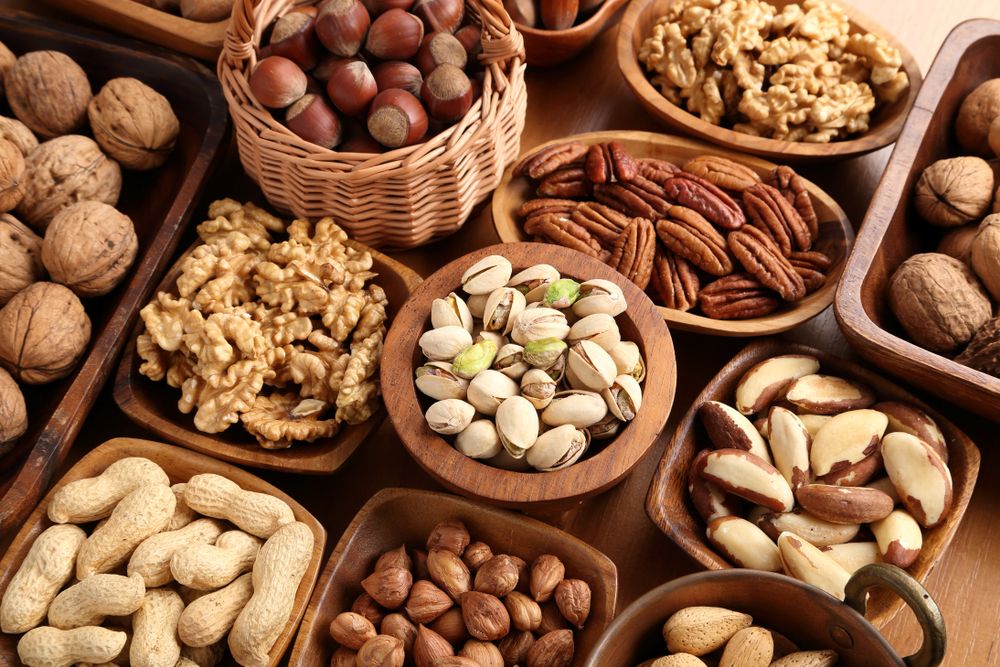Nuts are an excellent option for healthy snacking and enhancing the protein content of meals. However, when aiming to maximize protein intake, it's helpful to know which nuts are most protein rich. For expert insight, we turned to Destini Moody, RDN, CSSD, LD, a registered dietitian and sports dietitian with Garage Gym Reviews. She provides valuable information on the nuts highest in protein and advice on incorporating them into a healthy diet.
Renowned for their plant-based protein, vitamins, minerals, and fiber, nuts offer multiple health benefits. Recent studies suggest that including nuts in your diet can increase fullness and aid in healthy weight management. For those engaged in physical activities or focusing on building lean muscle, nuts are a beneficial protein source. Research indicates that plant proteins from nuts can promote muscle protein synthesis, crucial for muscle building and repair. Additionally, a higher intake of nuts is linked with improved blood sugar regulation and may contribute to preventing insulin resistance.
Whether you snack on them directly, add them to salads, or incorporate them into your cooking and baking, including these nuts in your weekly diet can increase your protein consumption and enhance your overall health.
1) Walnuts
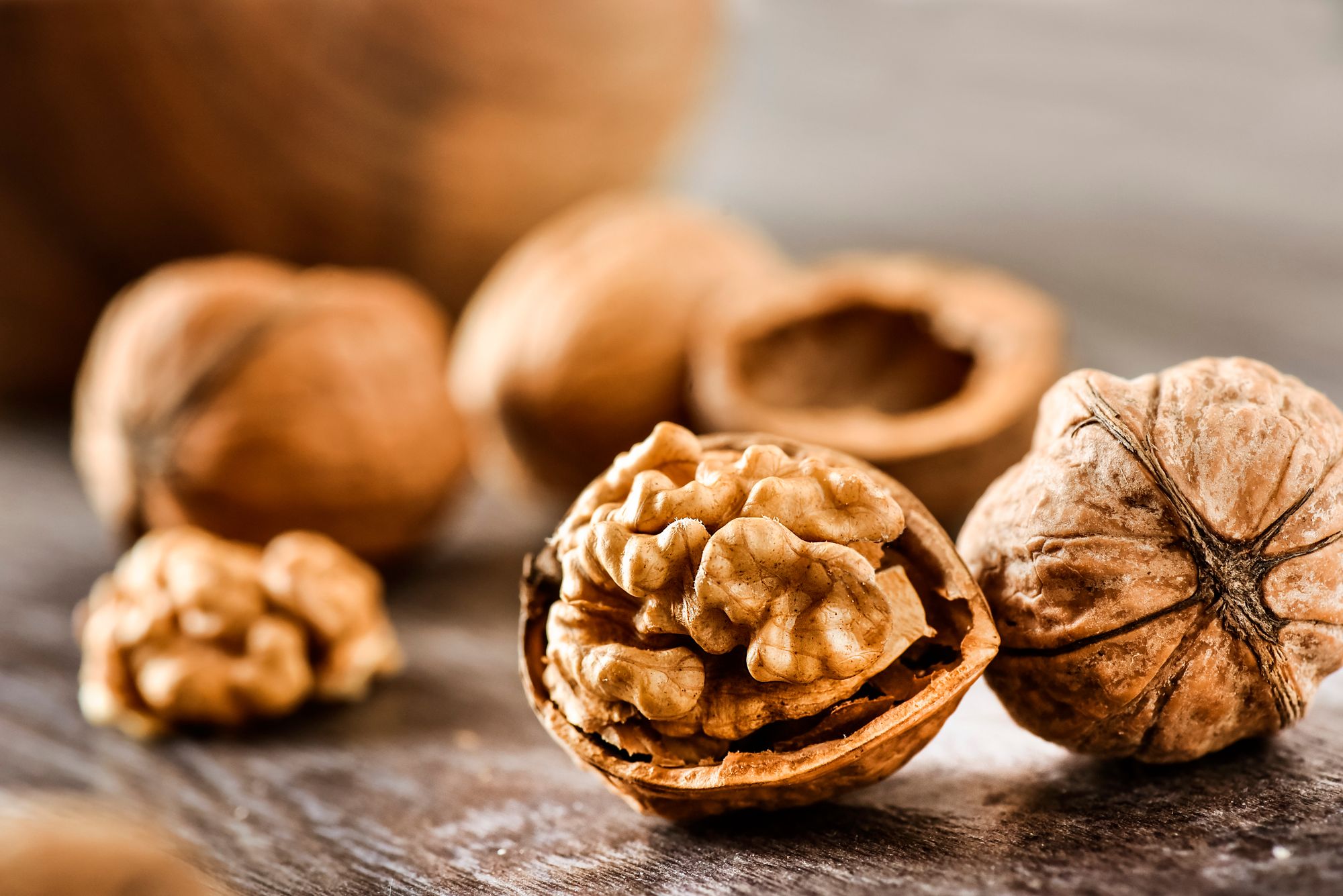
Protein (per ounce): 4 grams
Calories: 180
Walnuts, resembling the shape of a brain, are rich in heart-healthy omega-3 fatty acids. A one-ounce serving offers 4 grams of protein and 180 calories. Their unique flavor and crunch, along with their versatility, make them an ideal addition to salads, smoothie bowls, and baked goods. This enhances your intake of plant protein and supports heart health.
Destini Moody notes, "Walnuts have one of the highest fat contents among nuts. While they may not be the best choice for frequent consumption in a weight loss diet, it's crucial to recognize that these fats are primarily omega-3 fatty acids. Omega-3s are essential fats that help reduce the risk of heart disease and improve brain health."
2) Pistachios
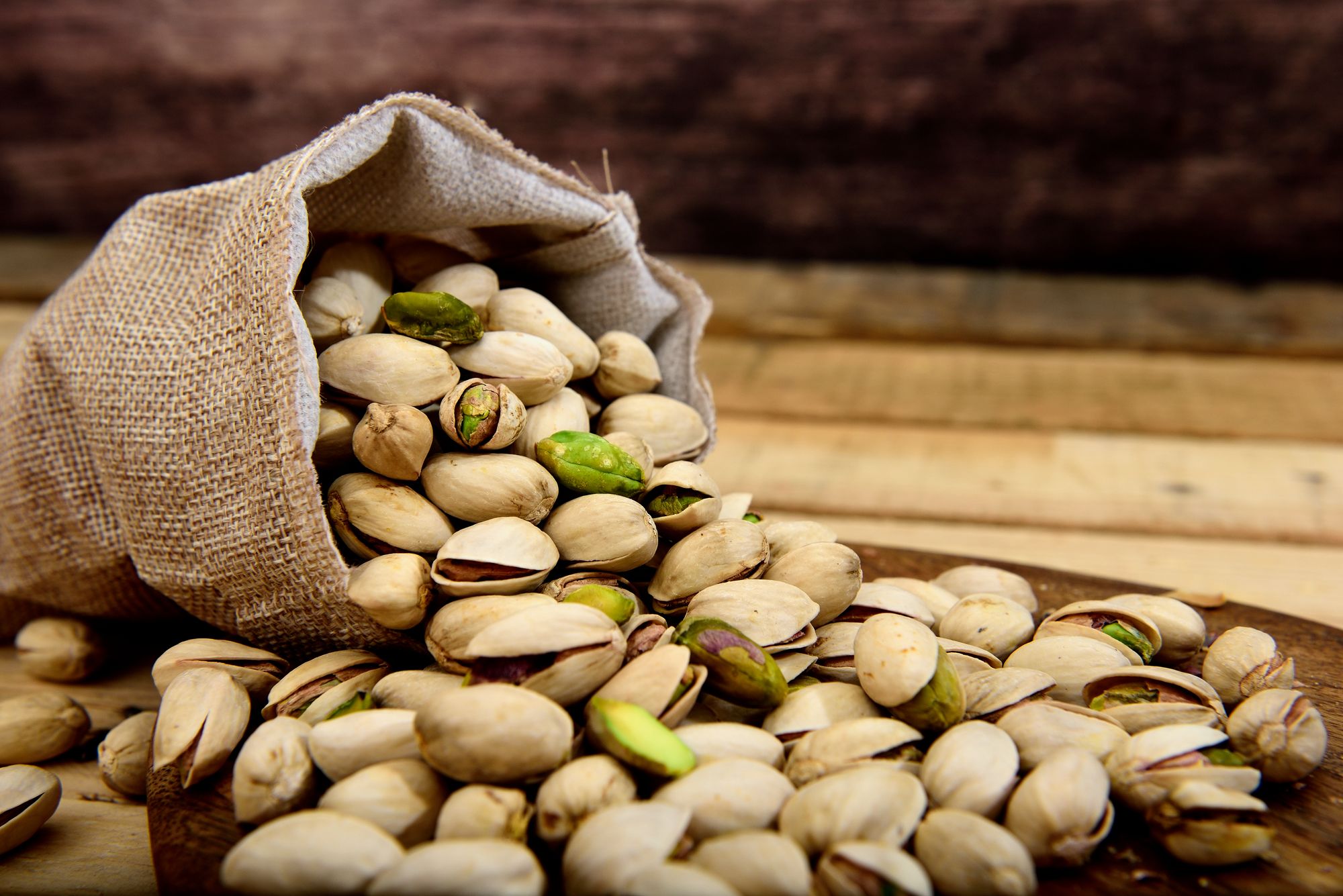
Protein (per ounce): 6 grams
Calories: 159
Pistachios are easily recognizable by their bright green color and their crunchy shells. Each ounce of pistachios contains about 6 grams of protein and 159 calories. Beyond protein, they are a rich source of fiber, healthy fats, vitamins, minerals, and antioxidants, including flavonoids and anthocyanins, which contribute to their strong anti-inflammatory properties.
Destini Moody highlights the nutritional value of pistachios: "The remarkable aspect of pistachios is that they contain all nine essential amino acids, which the body cannot synthesize and must obtain from food. This is a unique feature for plant foods, as usually animal proteins are the primary sources of these amino acids. Additionally, pistachios that are still in their shells can aid in weight management, as their shells slow down consumption, making it less likely to overeat.
3) Peanuts
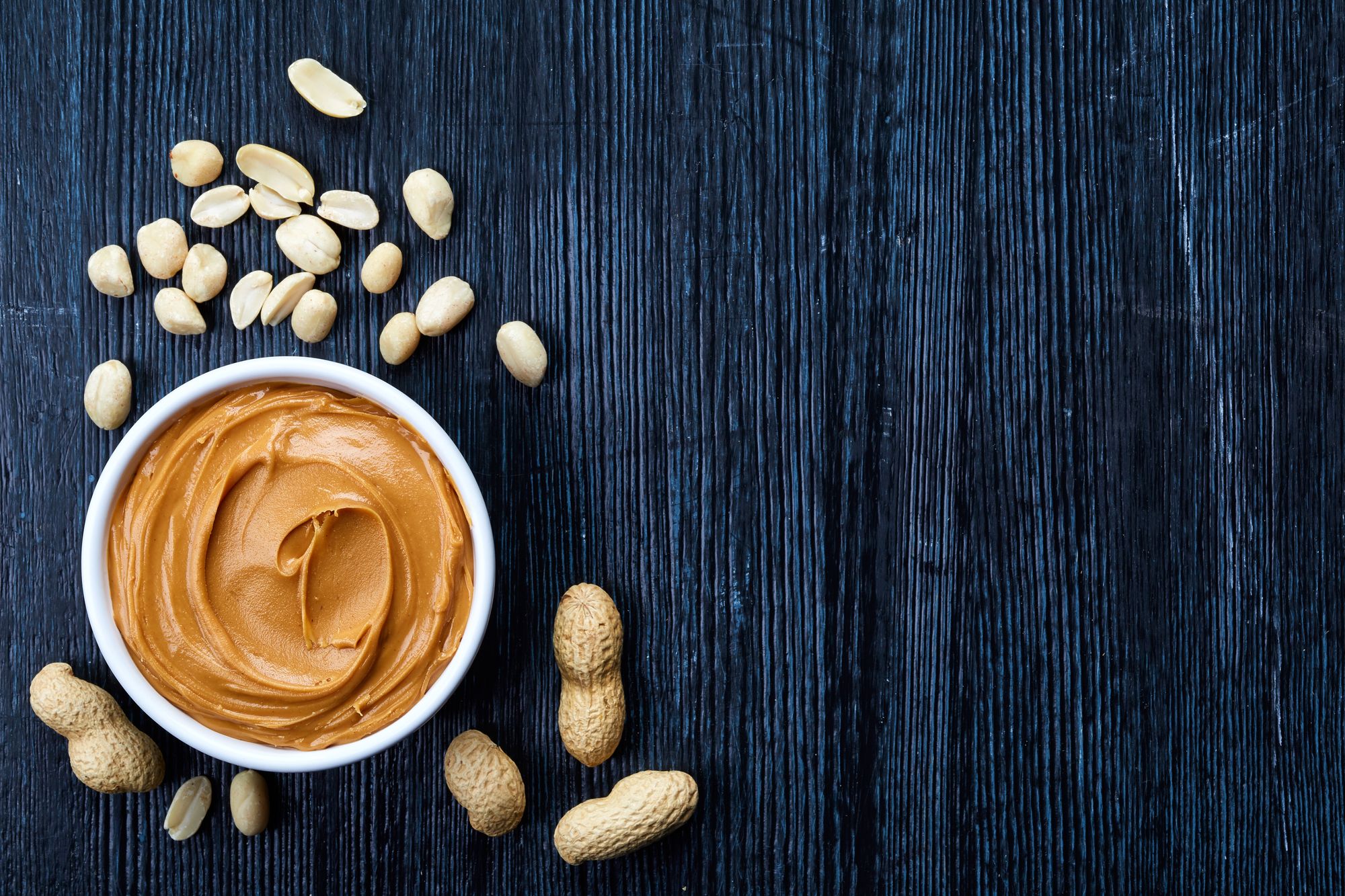
Protein (per ounce): 7 grams
Calories: 161
Peanuts, offering approximately 7 grams of protein and 161 calories per ounce, stand out as an excellent option for those seeking nuts high in protein. Their versatility allows for various culinary uses, from peanut butter sandwiches and roasted peanuts to being a key ingredient in homemade sauces.
Destini Moody points out, "Peanuts boast the highest protein content among nuts. They are also rich in magnesium, aiding in blood sugar regulation. While some nuts can be pricey, peanuts are generally more budget-friendly, making them an accessible choice.
4) Almonds
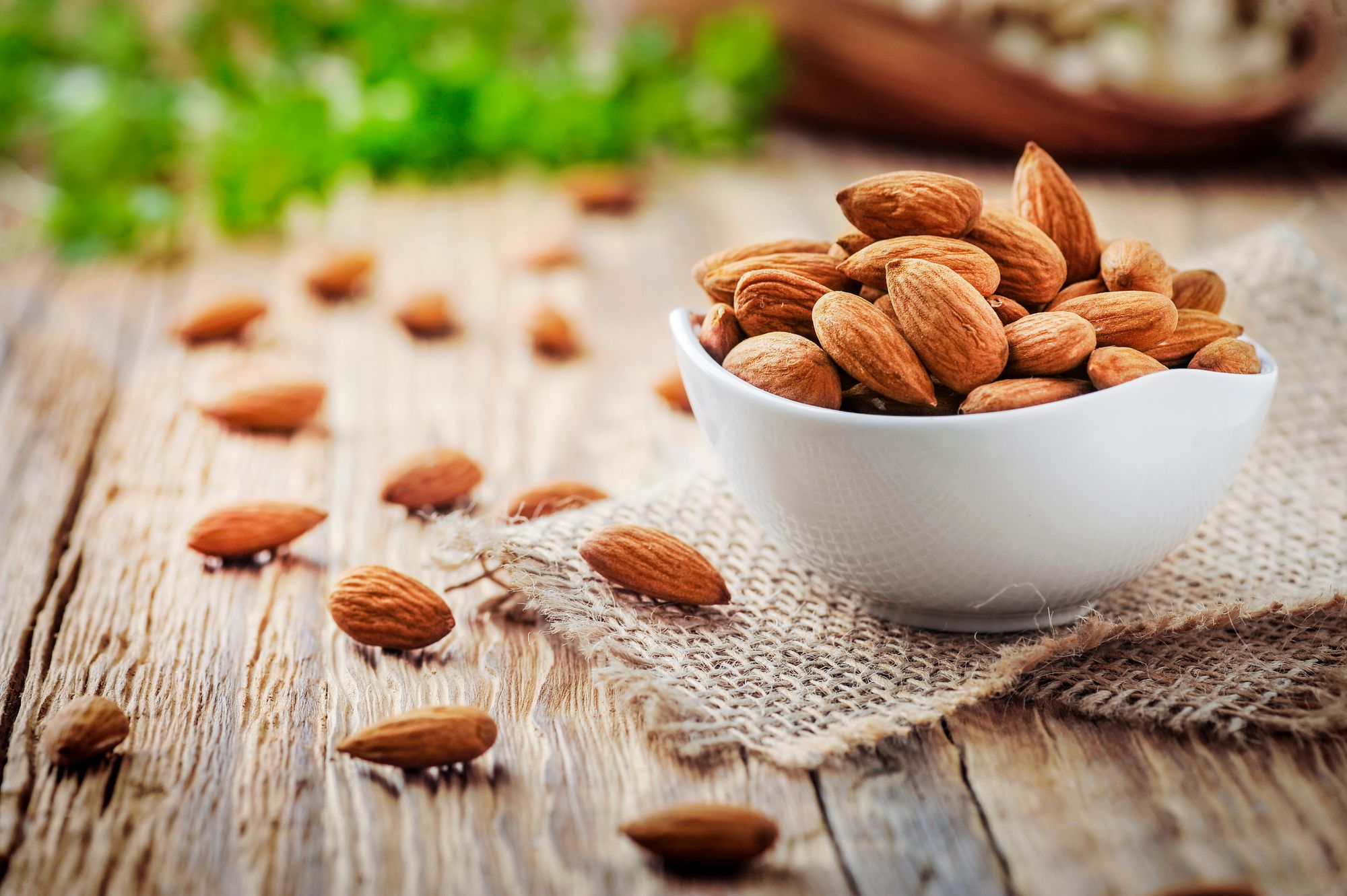
Protein (per ounce): 6 grams
Calories: 164
Almonds, with 6 grams of protein and 164 calories per ounce, are highlighted in a 2020 Nutrients study for being a superb source of plant protein, healthy fats, fiber, vitamin E, and essential minerals such as magnesium. They are versatile enough to be used as a topping for breakfast cereals, in yogurt parfaits, or eaten alone as a snack.
Destini Moody emphasizes, "Almonds are rich in vitamin E, a crucial antioxidant that aids in eliminating free radicals and inflammatory agents from the body. They are also beneficial for lowering cholesterol levels. Additionally, almonds have a lower fat content compared to many other nuts, making them a suitable option for those on a weight loss diet.
5) Cashews
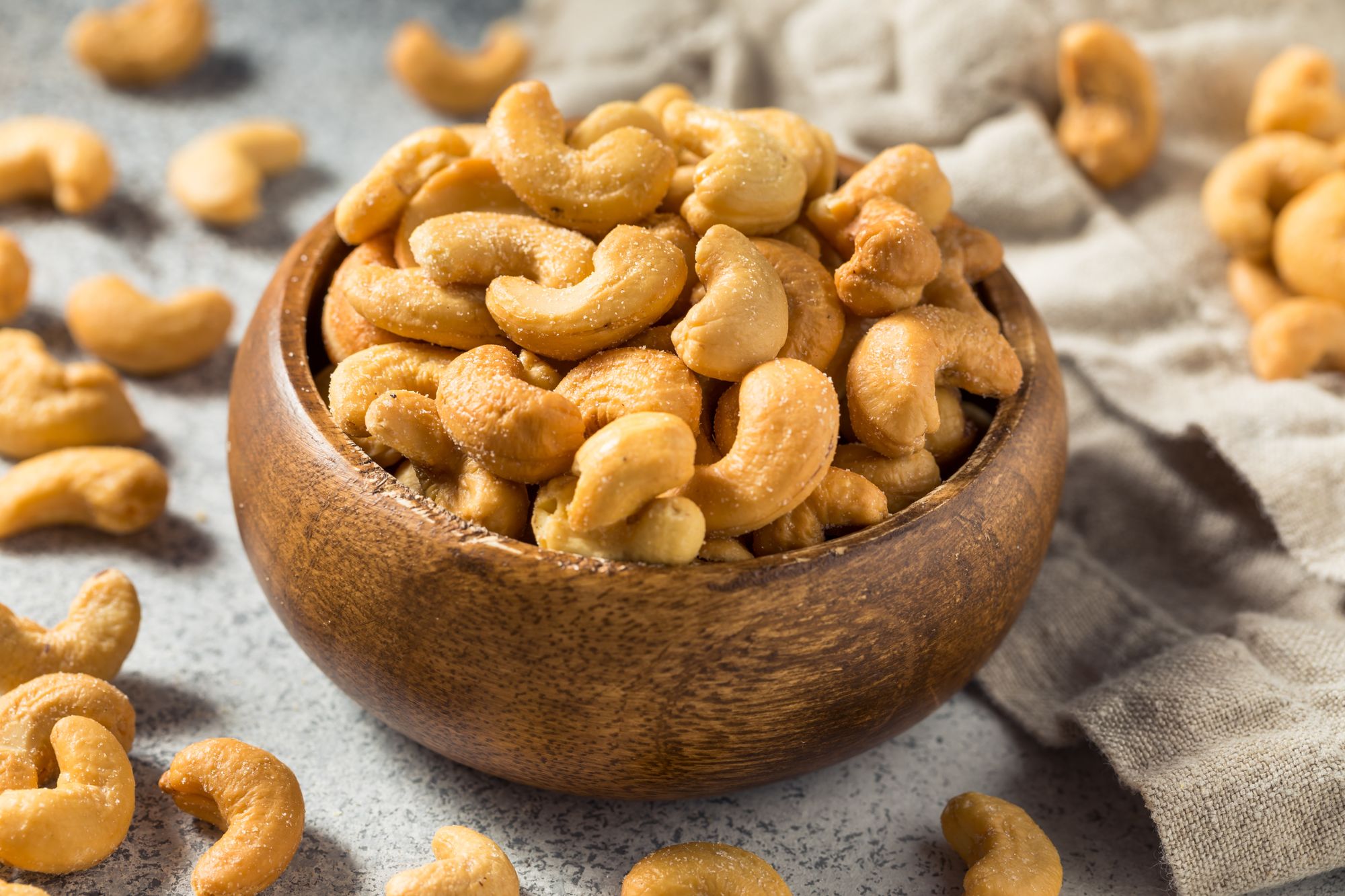
Protein (per ounce): 5 grams
Calories: 157
Cashews, not only tasty but also nutritious, provide around 5 grams of protein and 157 calories per ounce. Their creamy consistency and mild sweetness enhance both sweet and savory recipes. They are exceptionally versatile, perfect for topping salads, blending into smooth sauces, or simply snacking on.
Destini Moody notes, "Cashews are rich in copper, contributing to bone and cardiovascular health. Known for their richer flavor compared to peanuts, cashews, especially when roasted, are found to have higher antioxidant content.
6) Hazelnuts
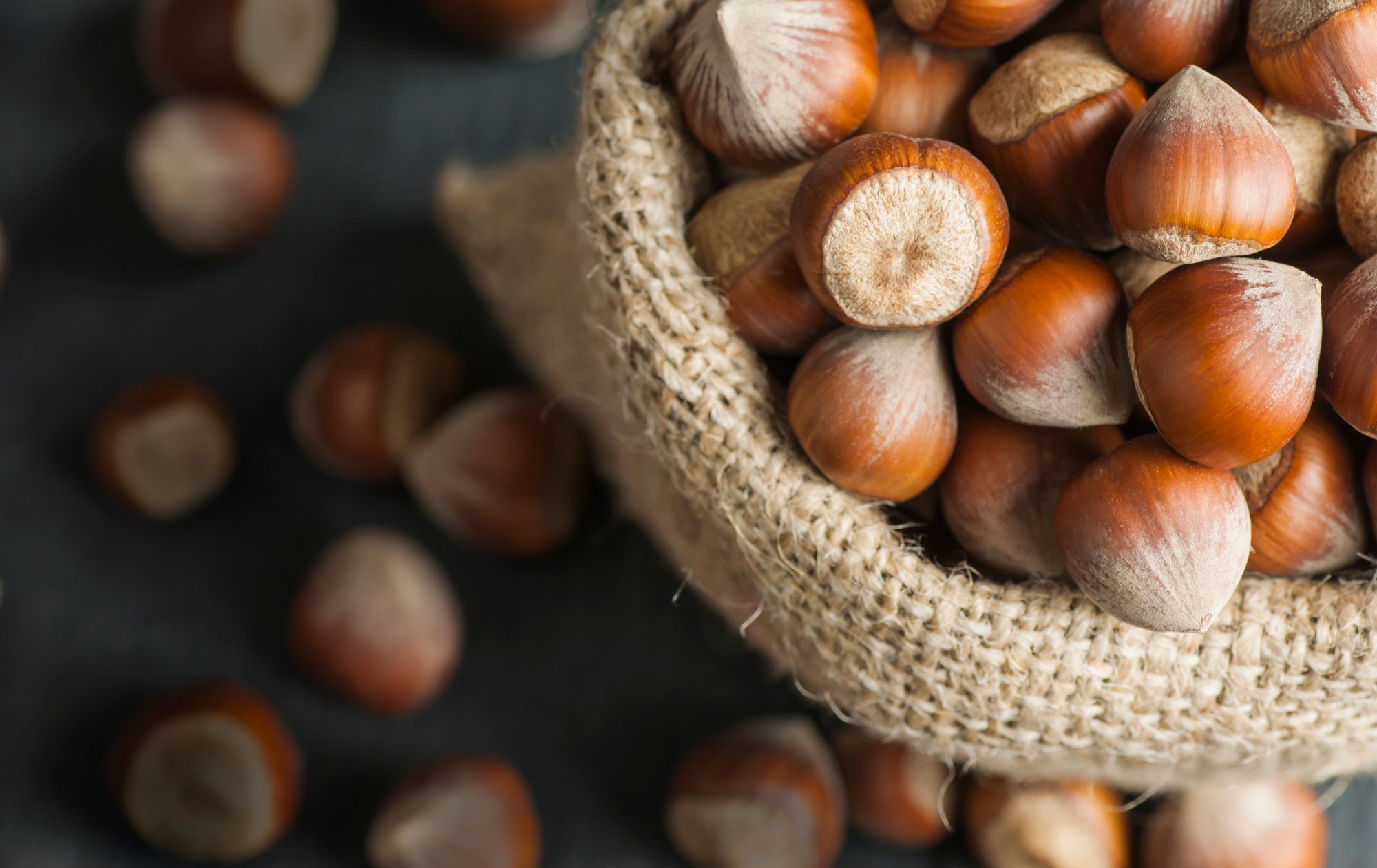
Protein (per ounce): 4 grams
Calories: 178
Hazelnuts offer about 4 grams of protein and 178 calories per ounce. Famous for their crunchy addition to sweets like chocolate spreads, they are also packed with nutrients. Research indicates that the high antioxidant levels in hazelnuts can help fight inflammation and reduce oxidative stress.
Destini Moody remarks, "Although often associated with coffee or chocolate flavorings, hazelnuts are also a decent protein source. They have a higher fat content compared to many nuts, but it's predominantly monounsaturated fat, which has been proven to lower heart disease risk."

